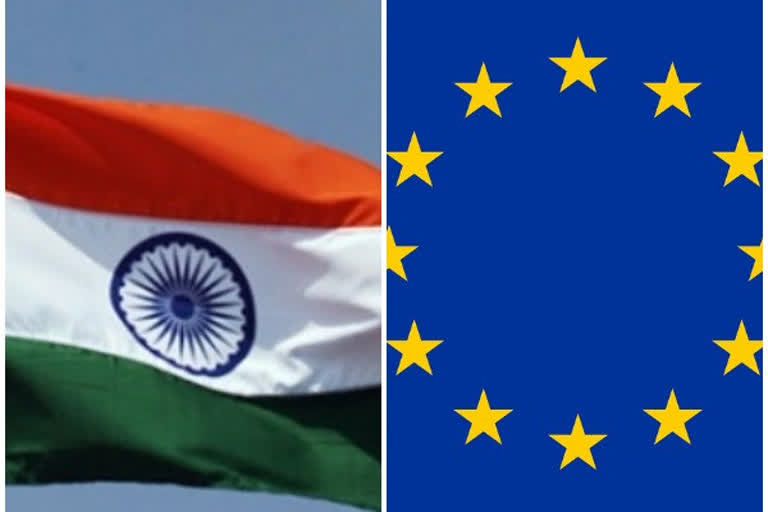New Delhi: India and the European Union on Friday concurred on the importance of safeguarding the freedom, independence and diversity of civil society actors, including human rights defenders and journalists, and respecting freedom of association and peaceful assembly, during the 10th India-EU Human Rights Dialogue held in New Delhi.
Notably, the Committee to Protect Journalists has on Wednesday called on the European External Action Service to hold Indian authorities accountable for widespread and severe press freedom violations. The EU reiterated its opposition to capital punishment in all cases and without exception. India reiterated its stand on recognition of the Right to Development as a distinct, universal, inalienable, and fundamental human right that applies to all people in all countries.
Further India and the EU reiterated their commitment to protecting and promoting all human rights. In this context, as open and democratic societies, they emphasized the universality, indivisibility, interdependence, and interrelatedness of all human rights. The Dialogue allowed for discussions on a wide range of human rights issues. Participants outlined their respective approaches, efforts, and achievements within India and the EU since the last Dialogue in April 2021.
Also read: India-EU conclude 1st round of negotiations for trade and investment agreements
India and the EU exchanged views and concerns on civil and political rights, the rights of persons belonging to minorities and vulnerable groups, freedom of religion or belief, freedom of expression and opinion online and offline, women empowerment, children's rights, LGBTQI+ rights, the rights of migrants, the use of technology in the area of democracy and human rights, issues of security and human rights, business and human rights, co-operation in public health, and humanitarian assistance and disaster relief.
Both sides expressed the need to foster greater engagement on human rights issues, based on internationally recognised human rights laws and standards. Both sides recognized the importance of strengthening national and international human rights mechanisms for the protection and promotion of human rights and the important role of national human rights institutions, civil society actors and journalists.
Also read: In climate fight, EU lawmakers back stricter emission caps
India and the EU updated each other on their implementation of the UN Guiding Principles on Business and Human Rights. The EU informed the Indian side of its recent initiatives on corporate sustainability due diligence. India updated the EU on the status of its first National Action Plan on Business and Human Rights. India and the EU will deepen cooperation in the field of business and human rights.
They both reiterated their commitment to multilateralism, including to the Universal Periodic Review (UPR) mechanism, and the importance of enhancing cooperation in international fora in the field of human rights, particularly at the UN General Assembly and the UN Human Rights Council (UNHRC). The Permanent Missions of India and the European Union to the UN based in Geneva will continue their exchanges and organize further joint activities following the side-event on gender equality, water and sanitation in the margins of the 50th UNHRC session.
The leaders reiterated their commitment to the shared principles and values of democracy, freedom, rule of law and respect for human rights. India and the EU looked forward to the next Human Rights Dialogue in 2023. The Human Rights Dialogue was co-chaired by the Joint Secretary for Europe West in the Ministry of External Affairs of India, Sandeep Chakravorty, and the Ambassador of the European Union to India, Ugo Astuto.



